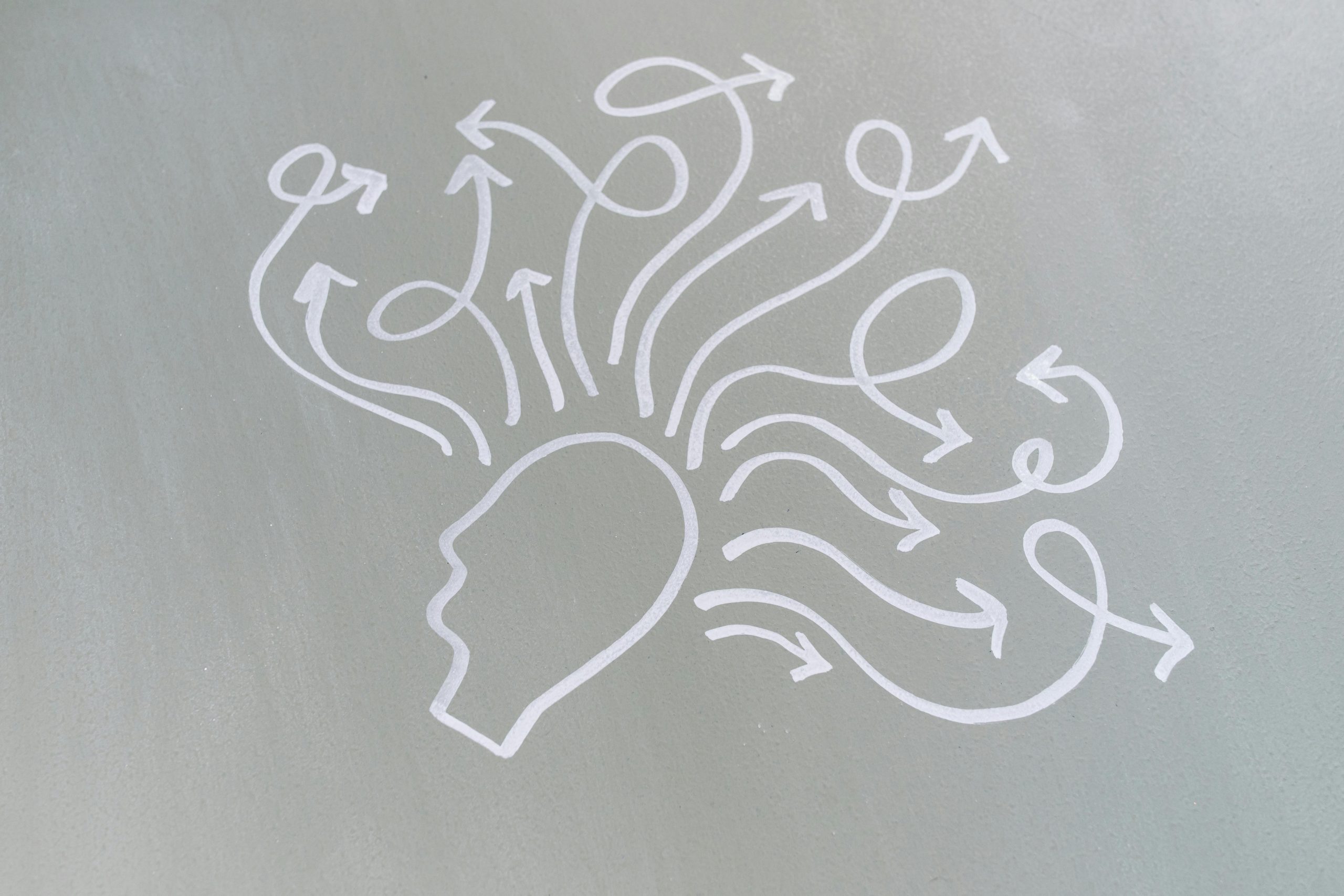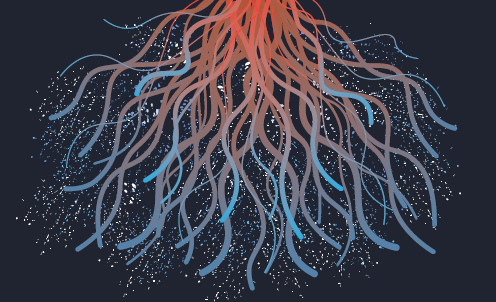People take supplements to improve or optimize their health. So what happens when you look at the label, and the ingredient list is filled with unrecognizable additives?
The human body is a remarkable orchestra of interconnected systems and at the heart of this symphony are hormones. Hormones are the body’s chemical messengers and once released by glands into the bloodstream they act on various organs and tissues to control the way the body functions. The hypothalamus, located at the base of the brain near the pituitary gland, monitors the body’s internal environment and initiates the release of hormones to regulate heart rate, body temperature, hunger and the sleep–wake cycle.

Hormones therefore influence a myriad of physiological processes, needed to maintain equilibrium within the body. This interplay is often referred to as the ‘hormonal symphony.’
- Serotonin – a neurotransmitter that helps regulate mood, behaviour and memory function. Imbalances of serotonin are thought to play a role in certain psychiatric conditions, including depressive disorders, anxiety disorders, post-traumatic stress disorder and obsessive-compulsive disorder.
- Dopamine – a neurotransmitter associated with pleasure and reward. It contributes to feelings of motivation and satisfaction.
Dysregulation of dopamine is linked to mood disorders like depression and bipolar disorder. - Cortisol – the ‘stress hormone’, is released in response to stress and helps the body manage the fight-or-flight response.
Chronic stress and elevated cortisol levels can lead to mood disturbances – anxiety, irritability and even depression. - Thyroid Hormone – secreted by the thyroid gland influences
metabolism, heart, lungs and muscles. Too little or too much thyroid hormone can cause symptoms of depression and anxiety. - Sex Hormones – oestrogen, progesterone and testosterone greatly affect mood, emotions and sexuality.
The Graceful Waltz: Women and Oestrogen
Oestrogen takes the spotlight in the female hormonal tapestry, influencing menstrual cycles, bone health and emotional wellbeing. Oestrogen’s journey is intertwined with progesterone, another vital hormone, in a delicate balance.
A woman’s lifespan is characterised by major hormonal transition periods, during which hormones interact with various
neurotransmitters and brain regions, influencing emotions in a variety of ways.
Menstrual Cycle: This involves a complex interplay of oestrogen and progesterone which rise and fall throughout the different phases of the cycle
- Follicular Phase (Days 1–14) – As oestrogen rises gradually in this phase, it promotes the production of serotonin and enhances the sensitivity of serotonin receptors, therefore promoting feelings of well-being, happiness, increased energy and enhanced cognitive function. Oestrogen levels peak just before ovulation (around day 14) and some women may experience a surge in energy, boost in self-esteem and this surge in oestrogen might also lead to an increase in attraction to potential partners.
- Luteal Phase (Days 15–28) – After ovulation, oestrogen levels decline, and progesterone levels rise. Progesterone enhances gamma-aminobutyric (GABA) transmission and receptor activation producing a calming effect. This may explain why progesterone metabolites have an anti-anxiety effect and why decreased levels are seen in depression.
However, in some cases, it may also contribute to increased anxiety or irritability, particularly when oestrogen levels are low in relation to progesterone. This phase is commonly linked to PMS symptoms, the cause of which is attributed to deficiencies in amino acids, calcium, magnesium and vitamin B, the interplay of oestrogen and progesterone and the excitatory and inhibitory roles of both serotonin and GABA.
Pregnancy: During pregnancy, oestrogen and progesterone levels rise significantly. While many pregnant women experience positive emotions, some may also experience mood swings, anxiety, or even depression, with the hormone fluctuations.
Postpartum Period: After childbirth, hormone levels rapidly drop. This hormonal shift, combined with sleep deprivation and other stressors, can lead to mood disorders such as postpartum depression and anxiety.
Menopause: The decrease in oestrogen levels during the menopausal transition disrupts brain bioenergetics (mitochondria within brain cells driving energy production). This is accompanied by reduced cerebral metabolism, β-amyloid deposition, synaptic loss and cognitive decline. Fluctuations in oestrogen also affect the balance of serotonin and dopamine, which is associated with mood regulation. A decrease in oestrogen levels can lead to difficulties in concentration, memory lapses and overall cognitive performance. In addition, low oestrogen levels can lead to sleep disturbances, further exacerbating emotional issues such as irritability, mood swings and anxiety.

Oestrogen helps regulate the body’s stress response by influencing the hypothalamic-pituitary-adrenal (HPA) axis. Low oestrogen levels can make individuals more susceptible to stress and less equipped to manage its effects on emotions.
Holistic interventions can be tailored to support women in navigating these hormonal shifts and optimising their emotional well-being throughout the life stages. Incorporating mindfulness practices, such as yoga and meditation, have been shown to enhance emotional regulation, along with a balanced diet, regular exercise and sleep quality. Herbs such as maca root, chasteberry (Vitex), black cohosh and ashwagandha are well known to have hormone balancing properties.
The Hormonal Tango: Men and Testosterone
At the centre of the male hormonal realm is testosterone, a hormone that is primarily associated with male sexual development and function, but also has effects on various physiological processes, including brain function and neurotransmitter activity.
Low testosterone levels may lead to reduced dopamine production, potentially contributing to symptoms like decreased motivation, low energy and depression. In addition, it can lead to lower serotonin production or decreased sensitivity to serotonin receptors, contributing to mood disturbances and increased feelings of anxiety or irritability.
GABA (Gamma-Aminobutyric Acid) is an inhibitory neurotransmitter that helps regulate anxiety and stress. Some studies suggest that low testosterone levels might be associated with decreased GABA activity, contributing to increased anxiety and difficulty managing stress.
Glutamate is the primary excitatory neurotransmitter in the brain, involved in cognitive functions. Low testosterone levels could potentially affect glutamate signalling, leading to difficulties in cognitive processes like memory, learning and concentration.
Acetylcholine is involved in various functions, including muscle control, attention and memory. Some research suggests that testosterone might modulate acetylcholine receptor activity and low testosterone levels could potentially impact cognitive functions dependent on acetylcholine.
Low testosterone can also decrease the production of norepinephrine and epinephrine – involved in the ‘fight or flight’ response, contributing to altered stress responses. Higher levels of testosterone might help individuals better cope with stressors or challenges. However excessive levels could potentially lead to heightened stress responses and have been associated with increased aggression and irritability in some studies. This might lead to more confrontational behaviour and difficulty in managing anger.
When understood through a holistic lens, testosterone’s effects become an avenue for promoting emotional well-being in men.
By offering interventions to support stress, such as herbal medicine, stress management techniques and nutritional strategies, practitioners can guide men toward emotional balance without compromising their masculinity. Herbs such as ashwagandha, Tribulus, shilajit, have shown to support testosterone balance, mood and mental health

The Synchronised Bolero: The Subtle Influence of Partners’ Hormones
The hormonal dance isn’t confined to individual experiences – it extends to the realm of relationships. Recent research has unveiled the phenomenon of hormonal synchronisation among couples, where partners’ hormonal rhythms gradually align over time, fostering emotional attunement and empathy.
A study published in the Journal of Personality and Social Psychology by Saxbe et al. (2017) explored hormonal synchrony among couples. The study revealed that couples who reported higher emotional closeness exhibited greater synchrony in their cortisol levels. This synchronisation had significant implications for emotional bonding and relationship quality.
Promoting open communication and empathetic listening can deepen emotional connection. Additionally, incorporating adaptogenic herbs like Rhodiola rosea, can support both partners in managing shared stressors and reducing burnout as demonstrated by a study by Edwards et al. (2012).
Available upon request.

For more, check out these recently added webinars on FxLearn.
Share:
Related Posts

Why Would I Test Positive To Foods On A Dietary Antigen Test That I Don’t Eat?
Written by Precision Point Diagnostics | 2025 True food allergies are when the body develops antibodies against a particular food, or a related food. Patients

Mitochondria: The Overlooked Link in the Gut-Brain Axis
Written by Dr Sarah Daglis | 2025 The gut-brain axis is well-established, but there’s more to this dynamic relationship than meets the eye. A vital

Unlocking Respiratory Resilience Through Functional Medicine
Article written by Dr Michelle Clark Naturopathic Doctor Clinical Education Manager, FxMed Published 1 September 2024 People take supplements to improve or optimize their health.

AHCC: Unlocking the Immune Intelligence of Shiitake Mycelia
Article written by Jessica Sanders BSc. (Psy), Dip Nat, Dip Med Herb Technical Projects, FxMed Published 1 September 2024 People take supplements to improve or

Life After Weight Loss Meds
Kathi Head, ND February 20, 2025 You would have to have been spending glorious hours lying on the beach on a desert island not to


